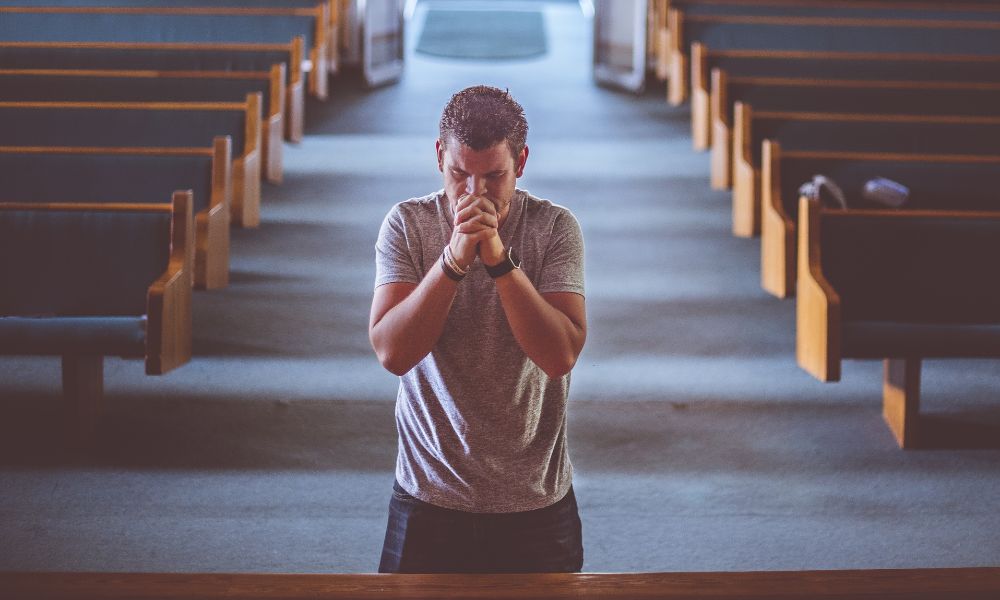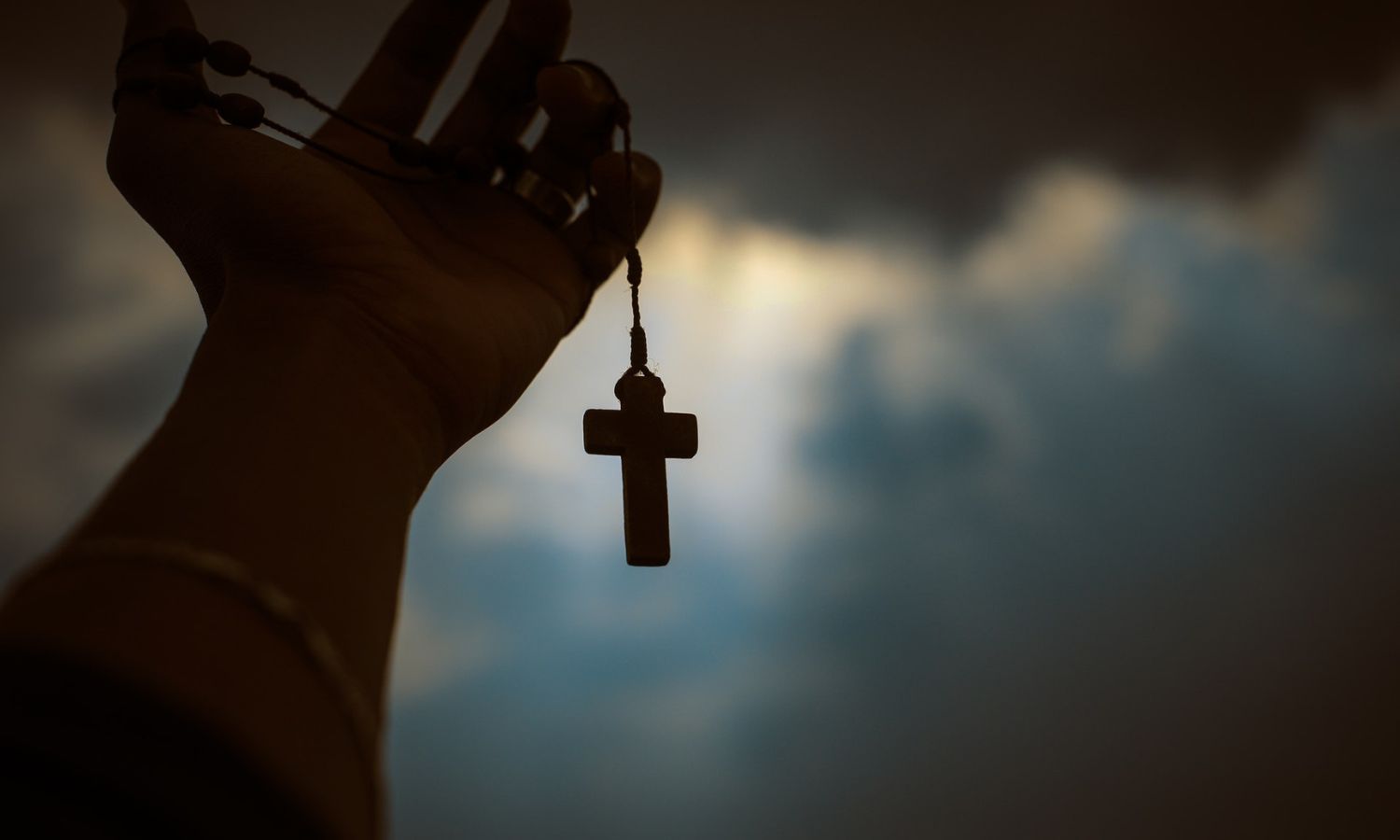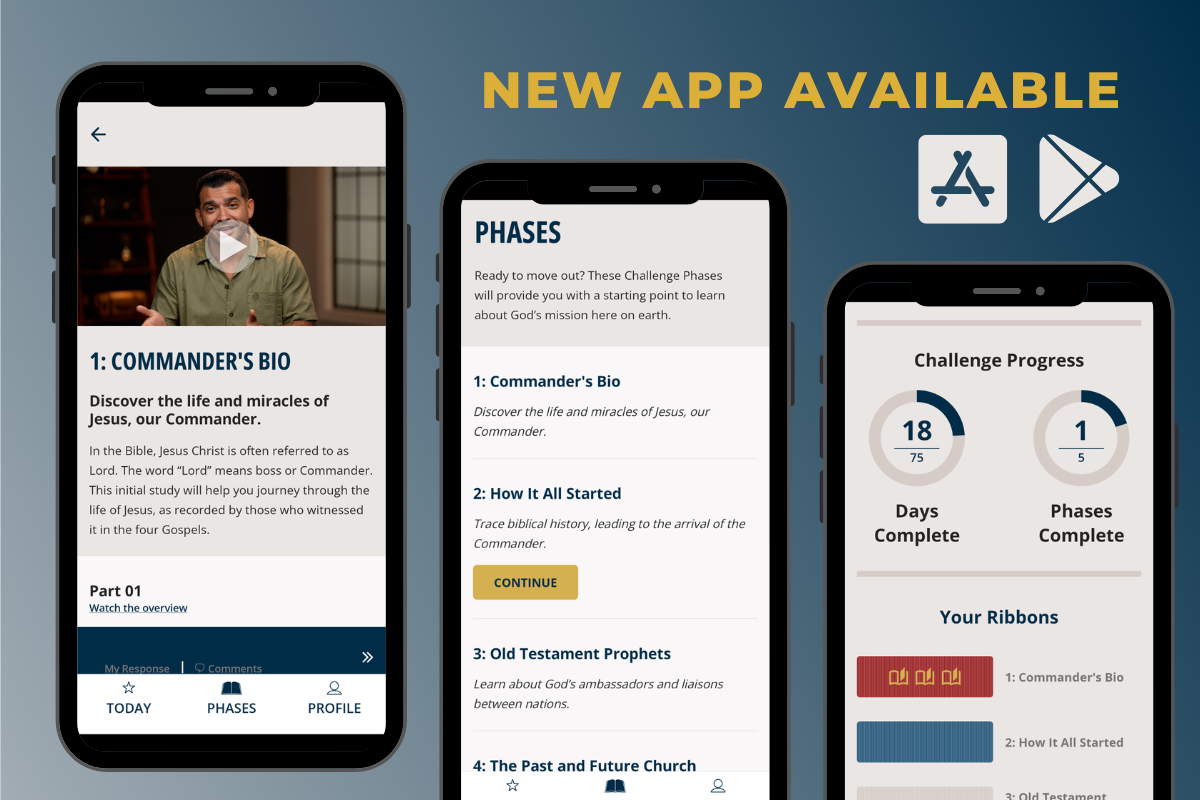Chaplains definitely go above and beyond in their line of work. Rarely found in the comfort of a church’s four walls, you will find them working in hospitals among the sick and dying, in prisons among the troubled and hardened, and even in war zones with other Military warriors.
This is not a job that one casually walks into. Along with the serious dedication to study and schooling, these heroes have to face incredible challenges that go beyond the scope of physical pain and fighting. They are called upon to deal with the emotional and spiritual woes of those they serve—whether it’s to comfort terminally ill patients with cancer, help a prisoner release the hatred and anger he’s had for his victims, or to wrap an arm around a Service member who lost members of her squad.
How do these men and women decide to take up the torch and serve in this ever-tough and -selfless role? In short, it’s a calling.
Answering the Call to Serve on God’s Front Line
As God’s people, we are all called upon to live lives of love, faith, forgiveness, and repentance. These are God’s expectations for us in general when we decide to follow our faith. But, when we start to hone in on our God-given gifts—and how they can be used to further serve the Kingdom—we start to embark on a road to a deeper calling. We begin to ask ourselves, “How is God specifically showing me how to serve Him and His people with what He has given me?”
People are led to Chaplaincy because they have felt led to serve in that capacity. It’s something that is done to better the lives of others.

Let’s consider the calling of the Chaplain we at Armed Services Ministry had the honor of interviewing just a few weeks ago.
Rev. Dr. David Reese is a retired Colonel who served in the US Army for 30 years as a Chaplain. He spoke with our own Rev. Dr. Paul McCullough in an interview touching on his doctorate work addressing public tragedy and how other Chaplains might be equipped to handle it. He also gave us some insight into his calling when he was asked about his decision to join the Chaplaincy but only after he had considered being an astronaut and a Military doctor! What finally inspired him to become a Chaplain was:
“And so the other part of that, that was in my DNA was the service to others. And I really felt the pull by the end of my first year of college, that there was something else that the Lord wanted me to do. And so, I did some discernment and some soul searching and a lot of praying about that.
I remember very clearly going out to Fort Benning, Georgia, which is where our home is in Columbus, Georgia to talk to an Army Chap. And I asked him, ‘How do I know that this is what I need to do?’ He says, ‘Your problem is you’re waiting for some sign in the sky, you know, you’re waiting for the Lord to just whack you on the side of the head and call you, but sometimes it’s a still small voice and you just go towards that voice.’
And so that’s what I did. I felt a call to the Army Chaplaincy specifically and changed my major and finished up college. I went to seminary and then after seminary, I went into the army in 1982. I retired in 2012 after 30 years of active duty.”
No lights were shining down from Heaven and the angels didn’t sing, but Rev. Reese still heard “the voice”, and followed the path the Lord set before him for 30 years! And the trademark sign that this was a true calling—service to others was his drive.
Expert Insights Into Chaplaincy Training
During the interview, Rev. Reese made it clear that there was a void in what Chaplains were learning in seminary when it came to extreme circumstances—like public tragedy and natural disasters. He gave examples of what those issues are and why Chaplains are usually unprepared to deal with them. But, there is also hope through his advice—both from his many years of experience as an Army Chaplain and the in-depth research he’s done to help Chaplains by giving them a framework to refer to.
What You May Not Be Prepared For—Yet
Rev. Reese’s drive to help other Chaplains deal with public tragedy stemmed from the lack of training he felt they were receiving to deal with these crisis issues. Handling the aftermath of a mass shooting or losing several Service members in an accident were not things that were covered in their training. He explains:
“When something goes wrong, it can be a large group of people that get injured or hurt. So then, 1984 was the first time I saw a Memorial service with multiple boots and helmets at the front of the chapel. And during the whole process of that, I realized, ‘Wow, doing one funeral is one thing, but doing a funeral for five or six people at a time, that’s a different kind of thing.'”
He also mentioned that because there is no formal training in these areas, Chaplains are forced to learn how to handle these situations while they’re on the job:
“Especially when we talk [about] combat, we have to be prepared. And if seminary is not gonna prepare us, then we kinda get it as on-the-job training and, and I’m sorry—that’s not something you should be getting O.J.T. for to be prepared. No. When you step into the pulpit on Sunday, after a public tragedy or after a mass casual event, that is not the time to try to figure out your theology of death.”
Certainly, there are some big challenges that all Chaplains have to face.

But There’s Hope
Fortunately, no Chaplain has to go this road alone. For at least half a decade, Rev. Reese had worked tirelessly to provide Chaplains in training with better guidance in this area. His doctoral dissertation focused on exactly what Chaplains and pastors should say in the pulpit the following Sunday after a tragedy as well as the next few Sunday mornings to follow.
Rev. Reese’s guidance gives Chaplains direction when facing public tragedy for the first time and every time. During our interview, he offers several specific suggestions:
- “I would probably simply say, be present. With all that you have to be present. … The most important thing is for you to be present in the pulpit with your people and in their lives, in the rest of the world.”
- “If the preacher can give a visual—if they can tell a story—and if that story is scriptural, if it’s in alignment with the scriptures, if it’s godly, if it’s spirit inspired—especially then—that’s gonna break through the fog of grief and pain.”
- “Simply take a look at the literature … All you have to do is search on preaching after tragedy or the kind of term now that captures it is trauma-informed preaching.”
Be there for your people, use words and illustrations that empathize with the situation, and study the topic: all priceless advice for new and experienced Chaplains alike.
Answering the Call With Faithfulness, Courage, and Strength
All things considered, being a Chaplain can be accomplished with:
- Faithfulness that God will give you the power and the wisdom to see you through
- Courage to be sent to the ends of the Earth and stand up for what is right
- Strength to handle the physical, mental, emotional, and spiritual demands of the job
In keeping with this theme, let’s consider the Lord’s servant, Joshua. He trusted the Lord and followed his commands—even when it meant going into foreign lands and facing new enemies. He was faithful in hard times and was a courageous leader. Even though he had to be reminded by God to take up the mantle of leadership after Abraham died, he followed through. Joshua would have made a great Chaplain!
“Have I not commanded you? Be strong and courageous. Do not be frightened, and do not be dismayed, for the Lord your God is with you wherever you go.” Joshua 1:9 (ESV)
Final Thoughts for Prospective Chaplains
Being a Chaplain is hard work, but we serve an all-powerful, all-knowing God that will never leave nor forsake us. Rev. Reese did not doubt his calling in life, and even after 30 years in the Army as a Chaplain, he is still serving fellow Chaplains and pastors with his ministry and research. His passion to serve others is written all over his work.

Also, please check out our free resources for Chaplains on our website, such as the study on “Life is Unfair” from our God Understands program or the Never Alone study called “Suffering”.
We are honored to team up with our Chaplains to give them tools they can use to help those in their care. When we are following the call to serve God by serving others and we are obeying His will for us in our lives, anything is possible.
“I can do all things through him who strengthens me.”
Philippians 4:13 (ESV)






